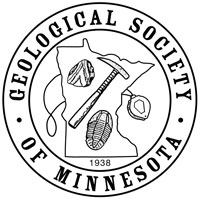Seminar Lab Date:
Seminar Lab presenter:
Seminar Lab Subject:
Seminar Lab Location :
A recording of this lecture is available on the Geological Society of Minnesota YouTube channel here: https://www.youtube.com/watch?v=PnOJTTHlVo8
Seminar Lab Details:
Summary: The appreciation of deep time is perhaps one of the most important contributions made by the geosciences, and the discipline of geochronology has come a long way since the foundation was built by the pioneering work of Marie Curie, Ernest Rutherford, and Arthur Holmes in the early 20th century. In this talk, I plan to give a brief review of radioactive decay and how it’s used to date rocks, discuss some of the stunning advances that have been made over the last couple of decades, and then give an example of how modern geochronology is used to answer geological questions from some of our recent work in Alaska.
Biography: Cameron Davidson earned a BS in Geology from the University of Wisconsin-Madison (1986) and received his MS and PhD from Princeton University (1991). He spent three years as a post-doc at the University of Basel (Switzerland) before moving to Beloit College where he taught for seven years before joining the Carleton Geology department in 2002. Professor Davidson has worked in Alaska for over 30 years and his current research is focused on the accretion and translation history of southern Alaska using U-Pb geochronology and Hf isotope geochemistry of detrital zircon.
